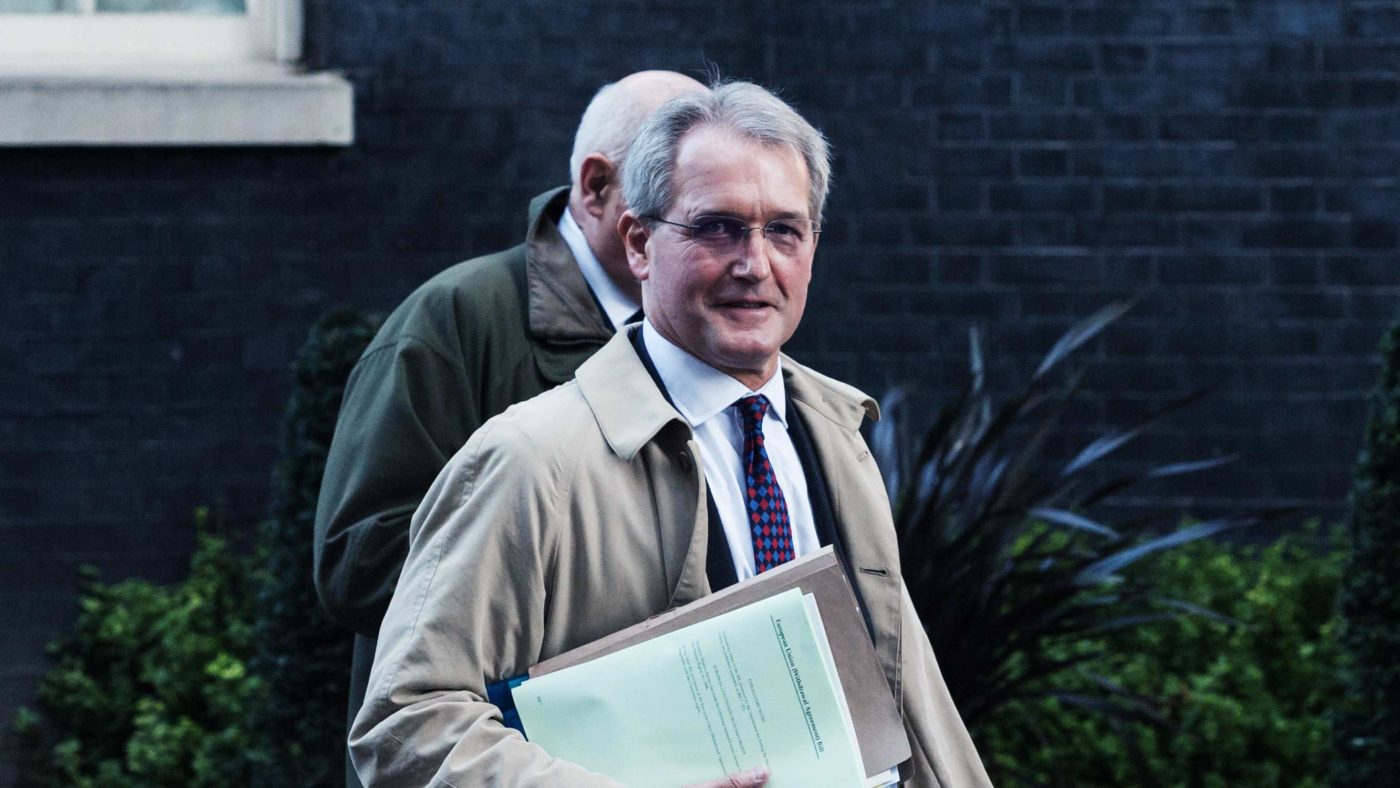The Government’s handling of the Owen Paterson affair has been extraordinarily abysmal. It is difficult to conceive of how it might plausibly have handled the issue worse.
Had it done nothing, Paterson would have served a 30-day suspension. The opposition parties might, and only might, have been able to drum up sufficient signatures to trigger a recall by-election. But in a true-blue seat, and with his long years of incumbency, Paterson would almost certainly have won.
Instead, his career is over and the Conservative Party now faces what could be a much trickier contest.
More importantly, it has also poisoned the well for reforming the way complaints against MPs are handled by making it inextricable from what looks like a fairly blatant attempt to get a popular colleague off the hook. (For all the smoke that has been thrown up, there doesn’t seem to be any suggestion that Paterson didn’t breach regulations and promote the interests of companies he was paid to advise without declaring it. That’s presumably why the committee of MPs which considers the findings of the Commissioner – including three of its four Conservative members – signed off on the report.)
There is still a good case for taking a second look at these procedures. But any such reform always needed to be handled with great care, for at least two reasons.
First, reform needs to be enacted on a non-partisan basis and command the confidence of the other side. Changes delivered on a three-line whip, with the support of only one non-Tory MP, very obviously fail this test. The Government has duly been beaten into an embarrassing but entirely predictable retreat.
But second, because Parliament occupies a necessarily unique place in our constitution. At present, its scrutiny procedures reflect this. For all the complaining, there is a strong case that ultimately Parliament must police itself, because to do otherwise is to risk giving external forces undue influence on what is supposed to be our supreme democratic organ.
Reforms being proposed by some Tories do reflect this consideration. Anthony Mangnall, writing on ConservativeHome, suggested replacing the external Commissioner with a panel drawn from members of the House of Lords with legal and judicial experience.
Taken at face value, this seems like an elegant reform. It abides by the principle of parliamentary supremacy, avails itself of the vast pool of under-utilised talent in the Upper House, and addresses the problem of ‘quis custodiet ipsos custodes?’ by having one part of Parliament scrutinise another.
Yet by proceeding as they have, the Tories have if anything bolstered the opposite cause. The Commissioner is safe in her post and advocates of more entrenchment and a bigger role for various non-political bodies have been given licence to advocate for the reining in of parliamentary privileges.
Indeed, this unhappy cause has, if anything, been directly strengthened by Paterson’s own arguments, which rest in part on the suggestion that he ought to have recourse to the sort of measures one expects in a normal workplace.
But Parliament is not, should not be, and perhaps cannot be, simply another workplace. A Government worried about the ‘culture war’ ought to know this, as one feature of that struggle is the stifling effect that corporate culture and overzealous HR enforcement can have on free speech and expression.
Conservatives should be very wary of anything that might enable or accelerate the spread of this sort of compliance culture to the legislature. Parliament, unlike any other workplace in the United Kingdom, is a sovereign forum. That, and its representative character, justify different arrangements.
But if these arrangements are to be maintained, MPs have a duty to demonstrate that they can perform them. There needs to be a broad consensus on the enforcement of the rules and the punishment of wrongdoing. It is when these break down that appeals to external authorities gain a hearing. And it is these that the Government has undermined with its woeful conduct over Paterson.
Click here to subscribe to our daily briefing – the best pieces from CapX and across the web.
CapX depends on the generosity of its readers. If you value what we do, please consider making a donation.


